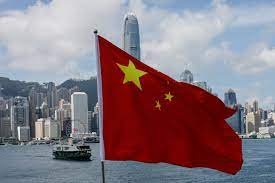$PTR $CL_F $XOM
#China #SouthSudan #OilProduction #CrudeOil #EnergyMarket #Petroleum #Commodities #OPEC #Geopolitics #Investing #StockMarket #SupplyChain
China National Petroleum Corporation (CNPC), through its joint venture Dar Petroleum Operating Co., has resumed crude oil production in South Sudan after nearly a year of halted operations, according to sources familiar with the matter. The resumption comes as a critical step in stabilizing South Sudan’s oil-dependent economy, which has suffered prolonged disruptions due to security risks and infrastructure constraints. Dar Petroleum, which is a consortium led by CNPC alongside Malaysia’s Petronas and South Sudan’s Nilepet, had suspended production in multiple fields as part of risk mitigation and logistical challenges over the past year. The renewed operations could help restore much-needed government revenues in South Sudan, where crude oil exports account for nearly 90% of state earnings.
The resumption of crude production aligns with China’s strategic interests in securing oil supplies from Africa amid ongoing global market uncertainties. Brent crude futures have remained volatile, with geopolitical risks, OPEC production decisions, and shifting demand in major economies shaping price movements. South Sudan’s oil fields contribute approximately 150,000 barrels per day in production during full-scale operations, a figure that holds significance in the broader supply landscape, particularly in light of supply constraints from sanctioned producers like Russia and Iran. Investors monitoring the energy sector may assess this development as a potential stabilizing factor for regional oil flows, which in turn influences global benchmarks such as $CL_F (crude oil futures).
For Chinese state-owned enterprises such as CNPC, maintaining South Sudan’s oil output remains a priority as Beijing continues to diversify the sourcing of its energy imports. CNPC’s share price ($PTR) could see modest movement in response to this production resumption, as the company bolsters its upstream oil assets amid fluctuating market conditions. Additionally, the decision reflects China’s ongoing commitment to African energy projects, reinforcing its broader Belt and Road Initiative investments across the continent. Analysts suggest that renewed oil flows from South Sudan may improve the efficiency of downstream refining operations in China, supporting supply chain resilience for domestic demand.
The market impact of this development will depend on multiple factors, including output consistency, logistical challenges, and pricing trends in the global crude market. South Sudan’s infrastructure constraints, including pipeline capacity and security considerations, remain a key focus for investors and policymakers observing the African oil sector. If production levels sustain without further disruption, this could marginally ease supply-side pressures in the oil market, especially as broader energy demand projections fluctuate. With oil prices remaining sensitive to macroeconomic conditions, geopolitical risks, and OPEC+ policy shifts, the restoration of Dar Petroleum’s operations will be closely watched by commodities traders and institutional investors tracking emerging market oil production.











Comments are closed.